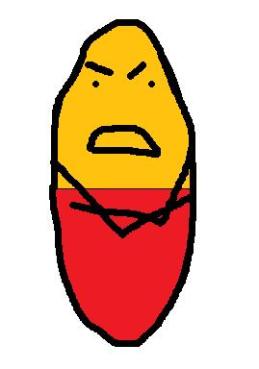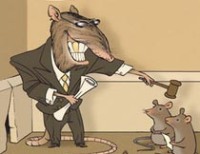Archive for the ‘Sprache – English’ Category
Idioms (business)
Posted on: 8. Januar 2013
Hello, it’s me, Madeleine, the new intern at WORLD TEXT.
I’m going through some files and found some interesting texts. I found gap fill tests on English business expressions. I already learned some of them during my apprenticeship as foreign langauge correspondent, but most of the idioms are new to me. So I’ve decided to list them (English -> German).
1.
to be hard-nosed -> kompromisslos/pragmatisch/abgebrüht sein
Example: „He’s the perfect person to take on this job. He’s a really hard-nosed person and won’t stand for any nonsense.“
2.
fat cats -> überbezahlter Topmanager/Bonze/Geldsack
Example: „We have to work hard for our money while the fat cats in the city make money doing very little.“
3.
high flyer/high-flyer -> Aktie mit extremem Wertanstieg/Senkrechtstarter/Höhenflieger
Example: „She’s obviously going to get a job soon. She’s a real high-flyer.“
4.
to do a roaring trade -> ein Bomben-/Riesengeschäft machen
Example: „The product has been a great success. We’re doing a roaring trade in it.“
5.
to cook the books -> die Bilanzen/(Bücher) verschleiern/fälschen
Example: „Their accounts were completely phoney. They had been cooking the books for years.“
6.
earth-shattering -> weltbewegend/welterschütternd
Example: „Well I’m not surprised they’re in a mess. It’s not exactly earth-shattering news.“
7.
big fish in a little pond -> „großer Fisch in kleinem Teich“; siehe auch „Fischteicheffekt“
Example: „He thinks he is really important, but he is just a big fish in a little pond.“
8.
to run a tight ship -> den Laden fest im Griff haben
Example: „She’s an excellent manager. She runs a really tight ship.“
9.
to make a killing -> ein Riesengeschäft machen/abkassieren/einen Mordsgewinn machen
Example: „I bought them cheap and sold them for a lot. I really made a killing.“
10.
golden handshake -> goldener Handschlag/hohe Abfindung
Example: „Tom was forced to leave his job, but he got a very generous golden handshake.“
11.
to have one’s hand in the till -> sich an der Kasse/am Geld des Arbeitgebers vergreifen
Example: „The accountant had stolen a lot of money. He had had his hand in the till for years.“
12.
to be a big shot -> ein hohes Tier sein
Example: „John doesn’t look very impressive, but he’s one of the big shots in this industry.“
13.
to hang up one’s hat -> seine Arbeit niederlegen
Example: „I’ve had enough. I’m going to hang up my hat and retire.“
14.
money-spinner -> Renner/Kassenschlager
Example: „You can make a lot of money selling this product. It’s a real money-spinner.“
15.
to stay ahead of the pack -> der Konkurrenz immer eine Nasenlänge voraus sein
Example: „If you want to succeed in the business, you need to always stay ahead of the pack.
16.
to drive a hard bargain -> hart verhandeln
Example: „It’s hard doing business with Maggie. She drives a hard bargain.“
17.
to corner the market -> den Markt beherrschen
Example: „He’s the only person who imports this product. He has really cornered the market.“
18.
to cut a deal -> einen Kompromiss eingehen/eine Vereinbarung treffen
Example: „We’re both competing for the same business. Perhaps we can cut a deal to share out the work.“
19.
to be on the make -> auf Geld aus sein/profitgierig/karrieresüchtig sein
Example: „I wouldn’t trust Harry an inch. He’s definitely someone who is on the make.“
20.
to make it -> es schaffen
Example: „Now that I’ve got a million pounds/dollars in savings, I really feel I’ve made it.“
World of Gestures
Posted on: 30. Juni 2011
An article published a short time ago in the Schweriner Volkszeitung describes gestures as being a language on their own and, as with any language, when you move from country to country you may not always understand what exactly is being said.
The article tells us that whilst nodding your head means “ja” in Germany, it means exactly the opposite in Greece; forming a circle your thumb and your forefinger to signal that everything is ok could get you in trouble in Spain where it has a more vulgar meaning and lazily lying your foot across your knee would cause great offence in Asian and Arabic cultures.
With this in mind, I decided to trawl the net to see which other common gestures have different meanings in different cultures. Here are my most important findings:
- The ‘ok’ sign also means that something is worthless in France and signifies money in Japan – interestingly enough, various websites quote Germany as being one of the countries where this hand gesture has a rude meaning, however, my German friends, colleagues and the Schweriner Volkszeitung disagree
- A thumbs up gesture is not at all positive in the Middle East or West Africa where it is a vulgar insult
- What an English person would perceive as an offensive hand gesture (index and middle fingers up, palm facing outwards), is the peace sign in North America or simply just a way of indicating that you’d like two of something
- Crossing your fingers à la the United Kingdom’s National Lottery logo won’t bring you any luck in Vietnam, where it is seen as the ultimate obscene gesture
- Beckoning someone to come towards you with your index finger actually signifies death in Singapore, and could get you arrested in the Philippines!
There are many more examples of body language that is interpreted differently in different countries and, as well as being fascinating, it’s a little disheartening. Nobody (that I know of) can speak all the languages of the world, but there is always the presumption that even if you don’t share a common spoken language with someone, you could manage to communicate a simple message using gestures. As it happens, you could communicate a simple message – but it may not be the one you intended!
Until I attend some foreign body language classes, I will be keeping my arms firmly by my side and hoping that that doesn’t have some unfortunate double meaning either.
Bis bald
Jess
Apostrophes
Posted on: 26. Mai 2011
Small? Yes. Insignificant? Certainly not. Apostrophes have a very important role in written language and can completely change the meaning of a sentence. Unfortunately, many people find the apostrophe so confusing that they either miss them out completely or panic and put them everywhere.
I’m not pretending to be an expert on the fine art of punctuation, my formal English Language education finished at GCSE-level when I was 16. However, that was enough to give me a good grasp of how to use an apostrophe and also, I must admit, to begin my transformation into a punctuation pedant. It’s still early days but give me another 20 years and I’ll be correcting supermarket signs with a permanent marker / Tipp-Ex with the best of them! At least I won’t be alone in my quest, research for this article led me to discover the existence of The Apostrophe Protection Society, an official organisation based in the UK.
The many websites I found dedicated to ending apostrophe abuse, along with a few sporadic lessons from my English teachers, have helped me to split the use of apostrophes into three simple categories:
- Use to replace missing letters in contractions:
- will not becomes won’t
- do not becomes don’t
- he is becomes he’s
- Use to indicate possession:
- Ellen’s brother
- My mother’s car
- The children’s books
- Use for the plurals of lower case letters:
- There are two i’s and two o’s in ‘dignotion’
- Dot the i’s and cross the t’s
I had never really thought about the third rule before I started reading lots of grammar websites, but it stops the plurals of lower case letters being read as other words. For example, without any apostrophes in 3a, we would have the complete words ‘is’ and ‘os’ instead of the plurals of the letters. For upper case letters, numbers and acronyms, however, apostrophes are not necessary:
- When she moved house, Chloe realised that she had 45 CDs, 200 DVDs and 3 VCRs.
- In his exams he got 4 As, 3 Bs and 5 Cs.
- The tradition began in the 1900s.
For some people, using an apostrophe correctly is as natural as breathing; for others it requires a bit more effort. I’m sure that even those who have mastered it sometimes stop, look at what they’ve written and think, “Hmm, is that right?”.
Among the dozens of newspaper articles I’ve read about apostrophes – some begging for it to be used properly, some calling for it to be scrapped – this light-hearted article from 1994 is my favourite:
http://www.independent.co.uk/news/world/creativity-an-excess-of-apostrophes-1373772.html
Bis bald
Jess
If you’ve ever been fortunate enough to visit Nottinghamshire, then no doubt you will have been greeted with the words ‘ay up mi duck’ (hello) and wondered why on earth someone just called you a duck. Well don’t worry, it’s an affectionate term!
If it’s ‘black o’er by Bill’s mother’s’ then it’s likely to rain soon and, if a child wanders into the road, you might hear their ‘mam’ (mother) shout “gerron corsey!” (get on to the pavement!).
However, if someone describes you as ‘mardy’ or a ‘mard arse’ then you ought to turn that frown upside down because it means you’re sulking like a child! The word ‘mardy’ is now more widely understood thanks to the Artic Monkeys’ song Mardy Bum but before that it was uncommon to hear it outside of the Midlands, even though it can be found in well-known literature from as early as 1913 in Sons and Lovers by D.H Lawrence, who was born in Eastwood in Nottingham.
Having been born and raised in Nottinghamshire, I speak fluent Nottinghamese; however this can cause problems when travelling outside of the county’s borders, especially when you don’t realise that a certain word is specific to Nottinghamshire! For example, in a cafe in the south of England, ordering a bacon ‘cob’ gained me nothing but a baffled stare – apparently I should have asked for a bacon ‘bread roll’; and when I taught the word ‘tabhanging’ (eavesdropping) to a French friend of mine, I was quickly interrupted by a girl from Belfast who had never heard the word before. I explained that it was a perfectly logical expression because when you eavesdrop, you literally hang your tab next to the conversation that you are trying to overhear. This then led to the revelation that the word ‘tab’ is not used by all Anglophones – not even by all British people – to mean ‘ear’. This is a shame because it means that not everyone gets to use – or even understand – such wonderful Nottinghamese phrases as:
– ‘Cor, that’s a tablaugher!’ (Oh, that tastes sour!)
– ‘Shurrup else I’ll bat ya tab!’ (If you don’t be quiet, I’ll hit you across the side of your head!)
The list of Nottinghamese words and expressions goes on and on. Here’s a link to a mini-dictionary that explains a few of our expressions and a link to an article written by a man who has done extensive research on Nottinghamese:
- http://homepage.ntlworld.com/walker_online/nottingham%20speak.htm
- http://www.bbc.co.uk/nottingham/content/articles/2005/01/04/features_about_nottinghamshire_nottinghamese_by_john_beeton_feature.shtml
What are the most interesting expressions used in your local dialect? Has yours ever been incomprehensible to a speaker of the same language (or was someone else’s incomprehensbile to you)? Please let me know, and maybe soon I’ll unveil the true meanings of ‘nesh’ and ‘jammy’…
Bis bald or ta-ra duck!
Jess










